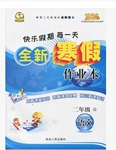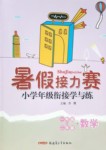题目内容
five hours to the meeting, David learnt that it had been postponed.
- A.Having driven
- B.Driven
- C.Being driven
- D.To be driven
考查非谓语动词,主语与drive之间是主谓关系,故用现在分词,根据语境分词的动作发生在位于动词learnt之前,故用现在分词的完成时,句意:大卫开了五个小时的车到达开会的时候,他了解到会议已经被推迟了。故选A。

 桃李文化快乐暑假武汉出版社系列答案
桃李文化快乐暑假武汉出版社系列答案 优秀生快乐假期每一天全新寒假作业本系列答案
优秀生快乐假期每一天全新寒假作业本系列答案 暑假接力赛新疆青少年出版社系列答案
暑假接力赛新疆青少年出版社系列答案For 52 years my father got up every morning at 5:30 am, except Sunday, and went to work. He returned home at 5:30 pm, for dinner at 6:00 pm. I never remember my father having a night out with his children. All he asked from me as a daughter was to hold his hammer while he repaired something, just so we could have some time to talk to each other.
For 22 years, after I left home for college, my father called me every Sunday. Nine years ago, my father, 67 years old, spent three days painting my house. He asked me to hold the paint brush for him and talk to him. But I was too busy and I could not take the time to hold the paint brush, or talk to my father.
Five years ago, my father spent five hours making a swing(秋千)for my daughter. Again, all he asked me to do was to give him a glass of tea, and talk to him. But again, I had some clothes to wash, and the house to clean.
On January 16, 1996, my father telephoned me as usual, this time from my sister’s home in Florida. I had to get to church, and I cut the conversation short.
The call came at 4:40 pm. That day, my father was in hospital in Florida. I got on an airplane immediately, and on the way, I made up my mind that when I arrived, I would make up for the lost time, and have a nice long talk with him.
I arrived in Florida at 1:00 am, but my father had passed away at 9:12 pm. This time it was he who did not have time to talk, or time to wait for me.
【小题1】
When the author was young, her father ______.
| A.was busy with his work | B.disliked his children |
| C.often talked to his children | D.never cared about his children |
How old was the author’s father when he made a swing for his granddaughter?
| A.45. | B.67. | C.71. | D.76. |
When painting the house, the father asked the author to hold a paint brush because ______.
| A.he wanted to make his work easy |
| B.he was too old to work all by himself |
| C.he just wanted his daughter to help him |
| D.he wanted to have a talk with his daughter |
The underlined phrase “passed away” in the last paragraph probably means “______”.
| A.arrived | B.lost | C.left | D.died |